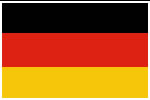
German Collection of Microorganisms and. Cell Cultures (DSMZ)
Institute profle. Diversity and hosting of prokaryotes, yeasts and fungi,plant viruses, human, animal and plant cell lines; molecular and phenotypical systematics; genome analysis. Rolein biodiversity research. DSMZ isthe only collection of biological resources inthe world withthe following combined portfolio: currently some 30,000 excellently classifed cultures, internationally recognised collection-related research. including an identifcation service, deposits for thepurpose of patenting, abroad spectrum of high-quality. material and rapid supply. DSMZ isthe only leading. centre for biological resourcesin
DSMZ staffare leading participantsinthe OECD initiative to defne Biological Resource Centres and other. bioinformation networking initiatives. Annually, they. publish more than 80 new species, strains and families. of prokaryotes and conduct ecological investigations indiverse habitats to determinethe population structureand species diversity.
Deutsche Sammlung für Mikroorganismen. und
Zellkulturen (DSMZ)
Inhoffenstr. 7B. 38124 Braunschweig
http://www.**mz.de
Contact on biodiversity
Prof. Dr. Jörg Overmann.
Tel: +49 (0)531 2616***
joo**[ta]**z.de
Leibniz Institute of Freshwater Ecology and. Inland Fisheries (IGB)
Institute profle. Biodiversity, lakes, rivers, floodplains; ecological service;. fsh, aquaculture, sustainability, ecosystem. Rolein biodiversity researchthe Leibniz Institute of Freshwater Ecology and Inland. Fisheries (IGB) isthe largest German centre for ecosystem research into limnic systems. IGB combines pure. research with conservation research as abasis for sustainable water management and focuses on biodiversityin lakes, rivers and groundwater. Nowhere elsein thecountry is there another institute addressing biodiversity research into inland waters on ascale comparable to that at IGB. The long-term data forthe Müggelseeand Stechlinsee (lakes) as well as forthe Spree (river),for example,are uniquein
Leibniz-Institut für Gewässerökologie. und
Binnenfscherei (IGB)
Müggelseedamm 3102587
http://www.**b-berlin.de
Contact on biodiversity. Prof. Dr. Klement Tockner
Phone: +49 (0)30 641 81***
tockner**[ta]**-berlin.de
Dr. Hans-Peter Grossart.
Tel: +49 (0)33082 69***
hgrossart**[ta]**-berlin.de
Leibniz Institute of Ecological and Regional.development (IOER)
Institute profle. Sustainable and environmentally compatible spatial.development; landscape development and management of landscape, landscape change and biodiversity;. spatial planning and environmental planning, ecosystem services, environmental risks and risk prevention;. geodata and remote sensing; climate change, European. spatial development. Rolein biodiversity research. IOER investigatesthe impact of land-use and changesin land-use onthe various elements of biodiversity, especially landscape diversity (diversity of habitats and. ecosystems). Projects addressthe effects of settlement.development, especially suburbanisation, traffc development andthe concomitant landscape fragmentation,changesin open spaces and their structure, large-scale,cross-border habitat connectivity andthe effects of climate change on ecological diversityin towns. One. important aspect of research focuses onthe question. of how spatial science can contribute appropriate tools. for conserving and restoring ahigh level of biodiversity.
Examples of this includethe treatment of fallow land inurban areas andthe development of tools for proactive. local environmental planning that championsthe conservation of biodiversity.
Leibniz-Institut für ökologische Raumentwicklung(IÖR)
Weberplatz 1
01217
http://www.**er.de
Contact on biodiversity
Tel: +49 (0) 351 4679***
w. wende**[ta]**r.de27
Senckenberg Gesellschaft für Naturforschung (SGN)
Director General: Prof. Dr. Dr. h. C.
Volker Mosbrugger. Senckenberganlag***
60325 Frankfurt am Main
http://www.**nckenberg.de
Senckenberg Gesellschaft für Naturforschung (SGN)
Senckenberg Natural History Collectionsin Dresden(SNSD)
Senckenberg Natural History Museumin Görlitz(SMNG)
Senckenberg German Entomological Institute (SDEI) inMüncheberg. Senckenberg bythe Seain Wilhelmshaven. Contact on biodiversity. Prof. Dr. Georg Zizka.
Tel: +49 (0)69 75 42 ***
georg. zizka**[ta]**ckenberg.de
Senckenberg Gesellschaft für Naturforschung (SGN)
Institute profle. Systematic phylogenetic and taxonomic research; phylogeography; fossil, marine and terrestrial systems including expertisein soil zoology; DNA and tissue banks;. research collections accessible online; specialist libraries;. nature conservation, eco- and earth-system research;. ecosystem services; geology, paleontology, meteorite. research; scientifc services; education programmes (exhibitions, museum educational service). Natural history. museumsin Frankfurt/Main, Görlitz and
Rolein biodiversity reserach. SGN has its headquartersin Frankfurt/Main and. branchesin Messel, Gelnhausen and
The institute address three major research themes:(1) taxonomy, systematics and phylogeny of marine,terrestrial and fossil organisms;(2) ecofaunistics, ecosystems goods and ecosystem services of important habitats with different regional focus. areas (central European forests and river systems, tropical/sub-tropical forests and savannahsin South East. Asia, Africa, Central and South America, coastal, reefand terrestrial ecosystemsinthe Arab region,the Wadden Sea,the North Sea,the Mediterranean Sea and thedeep sea);(3) earth system dynamics focussing on Devonian and. tertiary research as well as climate-bioshere interactions. Againstthe backdrop of this research profle, SGN is. involvedin numerous national and international biodiversity conservation programmes. The comprehensive. collections (including DNA and tissue preparations) as. well asthe natural history museumsin
Leibniz Institute of Plant Genetics and Crop. Plant Research (IPK)
Institute profle. Biodiversity, gene bank, molecular genetics, cell biology, physiology, bioinformatics, taxonomy, systemic. biology, biotechnology, genomics. Rolein biodiversity research. IPK isthe location ofthe federal ex situ gene bank of agricultural and horticultural plants. This is one of thelargest facilities of its kindinthe world and makes an. important contribution to conservingthe genetic diversity of our useful plants. Diversity research into crop. plants is amajor focus area atthe institute. Collection. related research focuses onthe continued improvement. of conservation management, addressing taxonomic. issues, as well as explaining speciation processes and. adaptations to different environmental conditions often closely related to them. Applied research addressesthe development of strategies to improvethe use of plant genetic resources for cultivation. Withthe help. of genome research and systemic biology approaches,for example, genesare specifcally identifedin order to elucidatethe processes driving evolution onthe molecular level and to identify new alleles by systematic. DNA sequencing of collection samples. In coordination. with other institutes IPK is involvedin implementing theNational Programme forthe Conservation and Sustainable Utilisation of Plant Genetic Resources of Agricultural and Horticultural Crops.
Leibniz-Institut für Pflanzengenetik
und Kulturpflanzenforschung (IPK)
Corrensstr. 3
06466 Gatersleben
http://www.**k-gatersleben.de
Contact on biodiversity
Prof. Dr. Andreas Graner.
Tel: +49 (0)39482 ***
graner**[ta]**-gatersleben.de
Leibniz Institute for
Institute profle. Interdisciplinary marine researchin coastal oceans and. marginal seas with afocus onthe
Leibniz-Institut für Ostseeforschung Warnemünde(IOW)
Seestr. 158119
http://www.**-warnemuende.de
Contact on biodiversity
Prof. Dr. Klaus Jürgens.
Tel: +49 (0)381 5197***
klaus. juergens**[ta]**warnemuende.de
Leibniz Institute for Zoo and Wildlife Research (IZW)
Institute profle. Adaptations and adaptability of wild animals (resistance to disease, reproduction, social behaviour and mating. system, nutritional physiology); species diversity and. niche differentiation; evolutionary conflicts; diversity of pathogens; non-invasive monitoring of well-being and. fertility; threatened mammals and large birds; causes of mortality; land-use conflicts, assisted reproduction.
Rolein biodiversity research. IZW researches intothe life history, ecology, nutritionaland reproduction physiology, behaviour, diseases and. immunity of wild animals, applyingthe concepts and. methods of evolutionary ecology and genetics, nutritional physiology, reproduction biology, veterinary and. reproductive medicine. The focus is on threatened,long-living or large mammals and birdsin zoos, thewild, savannahs and forest ecosystemsin Europe, Africa and
Leibniz-Institut für Zoo- und
Wildtierforschung (IZW)
Alfred-Kowalke-Str. 170315
http://www.**w-berlin.de
Contact on biodiversity
Prof. Dr. Heribert Hofer
Tel: +49 (0)30 5168***
direktor**[ta]**-berlin.de
Institute profle. Natural history collections; mechanisms of evolution;. biodiversity classifcation; biodiversity dynamics inspace and time, evolutionary ecology, palaeontology;. results of climate change; meteorite research and impact geology; scientifc services; education programmes(exhibitions, museum education)
Rolein biodiversity researchthe Berlin Museum of Natural History engagesin thespace-time classifcation of biodiversity at local, regional and global level, as well as fromthe molecular scale. right up to whole ecosystems. It investigatesthe effective mechanisms involvedinthe emergence of new. species andthe restructuring of biological systems inpalaeontological studies ofthe animal and plant kingdoms of earlier geological eras,in “natural laboratories” like large old lakes, oceanic islands or coral reefs,as well asin it own natural history collections. To gaina. better understanding ofthe reaction patterns of living. nature to climate and environmental changes itt is also. essential to examinethe tolerance levels and adaptability of organisms and ecosystems.
To this end,the museum conducts research projectsin natural habitats throughoutthe world, collects organisms, classifes new species and maintains anatural. history collection of extinct and living organisms (including their genetic material) comprising more tha***
million objects. In its role as a“memory of life”the collection offers scientists from all overthe world acomprehensive research infrastructure. The museum is also. actively involvedin evaluating and communicating theimportance of biological diversity to society through. science-based exhibitions, many other public activities,contributions to communication research and political. consultancy.
Museum für Naturkunde
Leibniz-Institut für Evolutions
und Biodiversitätsforschung an der Humboldt-Universität zu
Invalidenstraße 430115
http://www.**turkundemuseum-berlin.de
Contact on biodiversity
Prof. Dr. Reinhold Leinfelder.
Tel: +49 (0)30 2093 ***
leinfelder**[ta]**eum. hu-berlin.de
- 项目对接快讯
-
- 最新信息
- 热门信息


